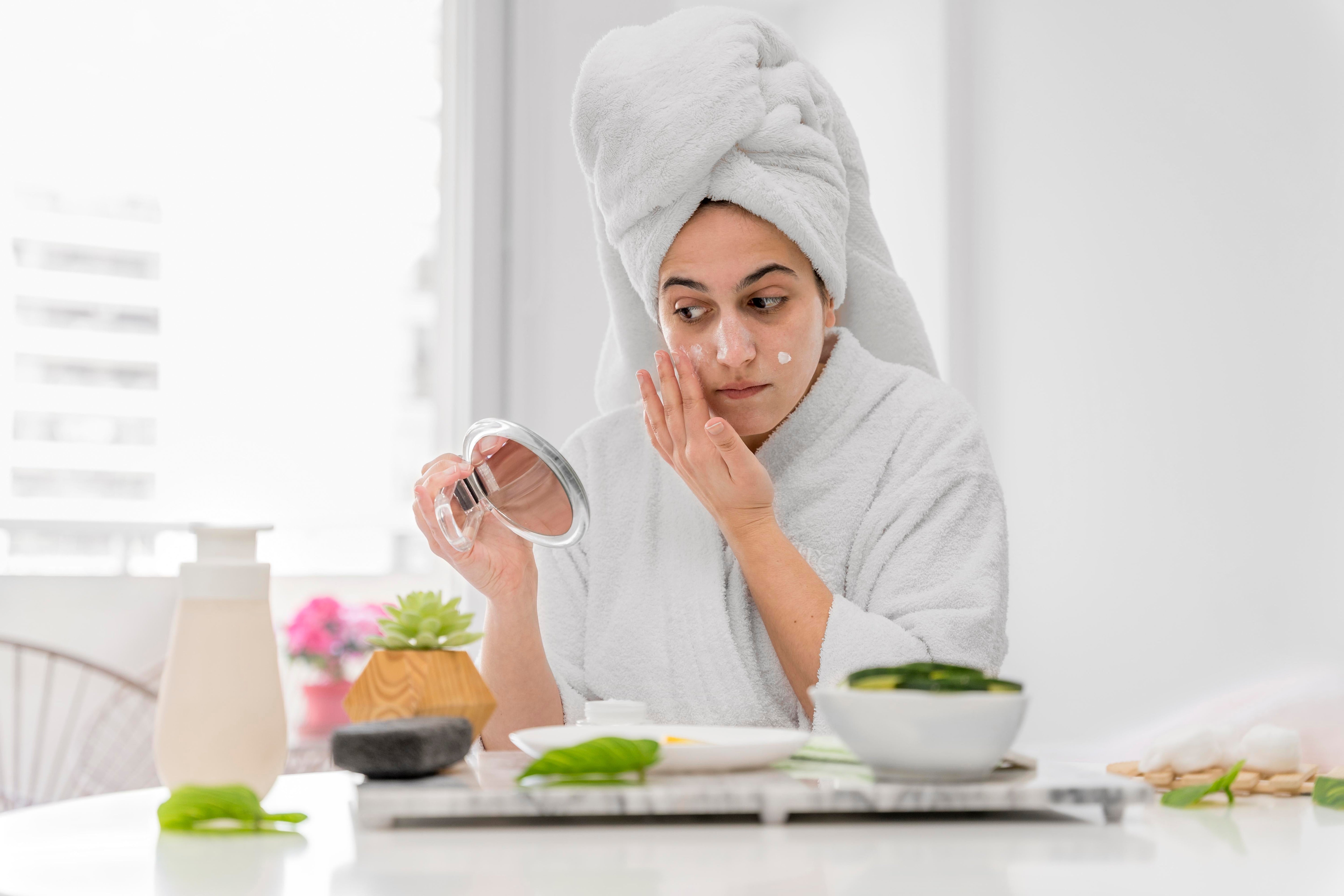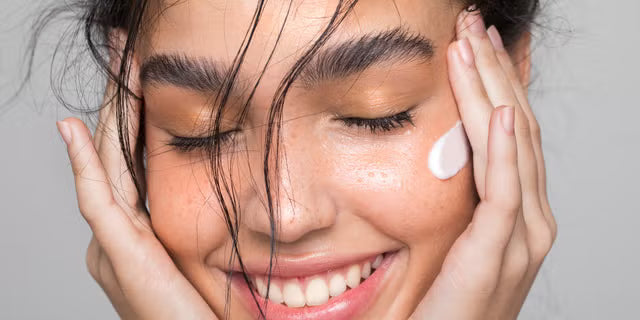
The Role of Antioxidants in Skincare: How Vitamin C Helps
In the domain of innovative skincare, one class of ingredients constantly dominates the R&D and needs of customers: Antioxidants. These elements are necessary for saving the skin from harm and protecting its youthful glow. Vitamin C is the most recognized antioxidant and is a multitasking element that provides a wide range of benefits in skincare. In this article, we will discuss the role of antioxidants in skincare: how vitamin C helps.
Vitamin C offers different benefits, such as lighting & smoothing the skin to increasing collagen & protecting against environmental pollutants. But how precisely does Vitamin C work in skincare? Why do experts and dermatologists suggest it so highly? Here, we shared the specific benefits of Vitamin C and how to include it effectively in your daily skincare routine.
The Role of Antioxidants in Skincare: How Vitamin C Helps | What Are Antioxidants?
Before understanding Vitamin C, it is crucial to know about the antioxidants in skincare. These compounds neutralize free radicals, unstable atoms, and molecules that harm to cells of the skin. These bad molecules are developed by:
- UVA Radiation
- Smoking
- Pollution
- Stress
- Lack of Sleep
- Poor Diet, etc.
These free radicals can accelerate skin aging, inflammation, collagen breakdown, and activate hyperpigmentation. Then it leads to fine lines, dark spots, dull & uneven skin, or wrinkles with time. But the antioxidant neutralizes this procedure by contributing electrons to control free radicals and their destructive behavior. Antioxidants help people to maintain healthy and young skin.
Why Vitamin C Is a Superstar Antioxidant
Vitamin C is also known as ascorbic acid, which is one of the most effective and well-researched antioxidants in the domain of skincare. It is normally found in fruits and vegetables and is crucial for multiple bodily functions, such as tissue recovery and immunity support. When you apply this to your skin, it offers many benefits for skin health, which usually why it is known as the gold standard of antioxidant skincare elements, such as:
Brightens the Skin and Fades Dark Spots
Vitamin C reduces the formation of hyperpigmentation by stopping an enzyme involved in melanin production, called tyrosinase. Also, by restricting melanin synthesis, it fades dark spots, sunspots, and post-inflammatory spots from acne.
Daily use of Vitamin C can lead to:
- More radiant, more even skin
- Lowered discoloration and dullness
- Enhanced radiance and glow.
It makes Vitamin C particularly valuable for people facing problems with uneven skin, dark spots, or sun damage.
Boosts Collagen Production
Vitamin C is crucial for collagen production, a protein responsible for the skin’s firmness, elasticity, and structure. With aging, collagen production decreases naturally, resulting in fading, wrinkles, and fine lines.
Topical Vitamin C:
- Restore collagen-producing cells
- Reduce visible symptoms of aging
- Improves skin texture and firmness.
If it is combined with retinoids, peptides, or microneedling, Vitamin C can also boost collagen rejuvenation.
Protects Skin From Environmental Damage
Vitamin C has sun-protective properties, helping to save the skin from harm caused by UV rays, pollution, and blue light. Although it is not a replacement for sunscreen, it improves your ability of skin to protect itself against oxidative stress.
According to studies, a combination of Vitamin E and ferulic acid triples the ability of vitamin C to protect, particularly more effective in daytime protection.
Reduces Redness and Inflammation
Because of its anti-inflammatory properties, it soothes irritated skin and lowers redness. Vitamin C is especially useful for these conditions, such as:
- Blackheads or pimples
- Acne and post-acne spots
- General skin sensitivity.
These qualities make vitamin C a suitable ingredient for a vast range of skin types, such as sensitive or breakout-prone skin. (If used in perfect concentrations).
Speeds Up Skin Repair
Vitamin C plays a key role in damage recovery and cell restoration. When you have normal acne scars, minor cuts, or irritation from environmental elements, then the use of vitamin C can speed up recovery and lower discoloration in skin.

How to Choose the Right Vitamin C Skincare Product
For an effective and useful vitamin C product, a perfect formulation is necessary for safety, stability, and penetration. Here we shared the key aspects to look for in a vitamin C product, such as:
Stability and Packaging
Vitamin C is highly unstable and inclined to oxidation after exposure to light, heat, or air. After oxidation, it turns yellow and loses its possible efficacy. Always asses for products in:
- Unclear, air-tight packaging
- Glass bottles
- Pump dispensers
Effective Forms of Vitamin C
L-ascorbic acid is a pure and the most effective form of vitamin C, but it may not be suitable for some people. Here we mentioned more gentle choices, such as:
- Magnesium Ascorbyl Phosphate
- Sodium Ascorbyl Phosphate
- Ascorbyl Glucoside
- Tetrahexyldecyl Ascorbate
Perfect concentration for different skin types:
- 5–10%: Good for newbies or sensitive skin
- 10–20%: Excellent range for most users
- More than 20%: Higher irritation risk with decreasing returns
How to Include Vitamin C in Your Skincare Routine
Constant and perfect use of vitamin C is crucial to getting the best possible result. Here is a basic routine to follow, such as:
Morning Routine:
- Wash your skin
- Apply Vitamin C serum on dry skin
- Follow with moisturizer
- Apply broad-spectrum sunscreen (SPF 30+)
Also, you can apply it at night, but morning use delivers better protection from environmental exposure.
Conclusion:
In conclusion, Vitamin C is a key antioxidant that lightens skin, fades dark spots, stimulates collagen production, and protects against environmental harm. By using a steady form of Vitamin C always, particularly in the morning, you can improve your skin’s health and gain glowing skin.
FAQs for The Role of Antioxidants in Skincare: How Vitamin C Helps
Question 1. How frequently should we use Vitamin C in our skincare routine?
Answer: For the best possible results, it is advisable to use Vitamin C every day. Morning application is perfect as it protects the skin from environmental stressors throughout the day.
Question 2. Is it required to use sunscreen when using Vitamin C?
Answer: Yes, application of sunscreen is crucial when including Vitamin C into your skincre routine. Although Vitamin C offers some kind of protection against UV rays, it should not substitute sunscreen, which is necessary for saving the skin from sun damage.
Question 3. How quickly can we expect to see results from using Vitamin C?
Answer: Results may differ as per the type of skin and product formulation, but many users observe improvements in brightness and general skin tone within 5 to 7 weeks of constant use. For collagen production, it probably takes more time, generally about 6 to 12 weeks.








